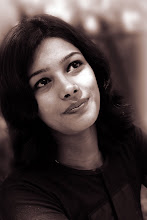
Afghan’s first novel to be written in English apparently is a most distinguished beginning. Khaled Hosseini, an Afghan and also the son of a diplomat received political asylum in the United States in 1980. He is a physician, at present, practicing in California.
Hosseini is capable of writing very moving, sentimental prose. But I say he is a bit unsentimental, particularly about people struggling to make a life despite gross adversity. He seems to be very capable of melding the global political issues with the local everyday survival of those caught up in horrendous upheavals and the destruction of their country, livelihoods and families… but I would like to reiterate, he is unsentimental.
This powerful novel tells a story of fierce cruelty and fierce yet redeeming love. Both transform the life of Amir, Khaled Hosseini's privy young narrator, who comes of age during the last peaceful days of the monarchy, just before his country's revolution and its invasion by Russian forces. But political events, even as dramatic as the ones that are presented in ''The Kite Runner,'' are only a part of this story. A more personal plot, arising from Amir’s life who is a privileged member of the dominant Pashtun tribe growing up in affluent Kabul in the Seventies. Hassan is his devoted servant and a member of the oppressed Hazara tribe whose first word was the name of his boy-master. The book focuses on the friendship between the two children and the cruel and shameful sacrifice the rich boy makes of his humble, adoring alter ego to buy the love of his own distant father. 'I ran because I was a coward,' Amir realises, as he bolts from the scene that severs his friendship with Hassan, shatters his childhood and haunts him for the rest of his life. Amir's close friendship with Hassan turns out to be the thread that ties the book together. The fragility of this relationship, symbolised by the kites the boys fly together, is tested as they watch their old way of life disappear. When Amir meets his old antagonist, now a powerful Taliban official, the book descends into some plot twists into a dramatic Hindi movie than a modern novel. But in the end we seem to be won over by Amir's compassion and his determination to atone for his youthful cowardice.
Amir's story is simultaneously devastating and inspiring. His world is a patchwork of the beautiful and horrific, and the book a sharp, unforgettable taste of the trauma and tumult experienced by Afghanis as their country clasped. It's an English (Shakespearean, they say) beginning to an epic tale that spans lives lived across two continents amid political commotion, where dreams wilt before they bud and where a search for a child finally makes a coward into a man.
Hosseini gives us a vivid and engaging story that reminds us how long his people have been struggling to triumph over the forces of violence -- forces that continue to threaten them even today, even now. The Kite Runner is shattering as it speaks about the price of peace, both personal and political, and what we knowingly destroy in our hope of achieving that, be it friends, democracy or ourselves.





